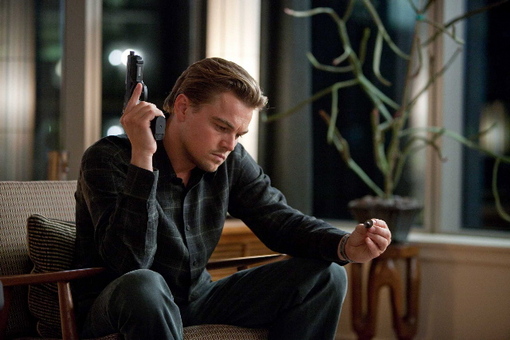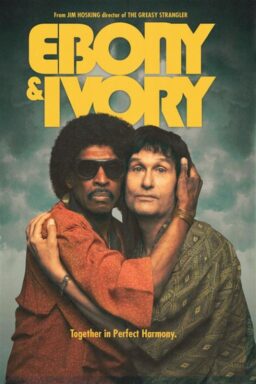You know what I liked about the olden days when movie reviews were really and truly embargoed until opening day? First, I miss the civility of the arrangement: OK, studios, you’re going to show us the movie when it’s done and we’ll publish our reviews when it’s available for real people to see it. That seemed to work fine for many years. I also liked not knowing what my fellow critics were going to say about the movie until all our reviews came out at once (or at least after my Friday arts section deadline, even in the case of alt-weeklies that used to hit the stands on Wednesdays). It was fun — part of the challenge of being among the first to engage with a movie — to see who would say what about the picture, and how it would compare to your own take. Sometimes it was uncanny how two critical minds would synch up — or perceive entirely different qualities in the same film.
Now, of course, you simply have to Avoid All Media (or have a memory like a sieve, like Guy Pearce in “Memento“) if you want to keep from tainting your impressions before opening day. So, because I rarely attend press screenings anymore (I’d rather buy a ticket that gives me some choice about where and when I see the movie), I guess I’m going to have to make it to a Friday matinee of Christopher Nolan‘s “Inception.”
I’m looking forward to it (though I haven’t much liked anything Nolan’s done since “Memento,” “Insomnia,” I don’t dismiss his potential) and I don’t want to know any more than I already do — which is probably less than you. (I know the names of a few of the actors, though I’ve forgotten most of the cast; and the story has something to do with dreams and corporate espionage, I think, though I intentionally didn’t pay attention to the trailer.) Warner Bros. recently made it clear in no uncertain terms that absolutely no early reviews of “Inception” would be tolerated… until Thursday, that is, because public screenings would actually begin at midnight Thursday/Friday. Then a few days ago they backed down and informed critics that their online reviews could appear as early as, well, Wednesday afternoon. Oh boy. More reasons to stay off the Internets.
But, of course, the reviews and other comments have been appearing online for more than a week now, eliciting the usual spectrum of responses to a Nolan movie (this one being his first since a little number called “The Dark Knight“). I’ve seen blurbs in which it’s been hailed as one of the greatest movies of all time or (at least “one of the year’s best”)… and heard tell of other notices dismissing it as a somewhat ineptly constructed piece of mechanical junk that emphasizes expository dialog (as in: “This is what this means!”) over filmmaking.
What, you’re surprised at the range? No, and I’m not, either — but I haven’t actually read any of them, either. I just know there’s a (not-so) new game in town and it’s about criticizing, interpreting and projecting the returns as they come in — like election night TV: Never mind the issues — just tell us how many are red states and how many are blue states.
So (as I like to quote the giant in “Twin Peaks”), “It is happening… again.”
Bill Ryan at The Kind of Face You Hate (“The Right Way to Like a Movie“)* writes:
With the release date of Christopher Nolan’s “Inception” fast approaching, the time has apparently come to fight about him again. The last time this happened was in 2008, when “The Dark Knight” was released, to howls of both approval and derision. It is not my intention to rehash, or recap, or re-ignite that particular internet-only foofaraw, and even if it was, I’ve already been beaten to the punch.
Bill R. recounts the story of The Hot Blog‘s David Poland, who did not attend a recent screening of “Inception” and then tweeted a premonition: “I’m sure that Inception will be THE studio movie for adults this summer… but when everyone starts drooling like this, I get nervous.” Although Poland said he was not instigating, or participating in, any sort of “backlash” against “Inception,” his comment evidently provoked a “backlash” against him (Poland).
Bill takes this to mean that…
the backlash against “Inception” has apparently started already, with record speed: before anybody except a handful of critics have even been able to see the thing. And according to Poland, because they all liked it with varying degrees of enthusiasm, it’s probably not that good. Not bad, Poland is quick to point out — he expects to like it! He even said so! It’s just that a large number of positive reviews means the movie he thinks he’s going to like will probably be bad. But only a little bit bad. But still bad.
But not everyone agrees! You see, there may, in fact, already be (or have been) a backlash against the backlash even before there was evidence of a backlash to begin with. The evidence? Well, on July 6 Patrick Goldstein wrote in his LA Times Big Picture blog (“Will there be an ‘Inception’ backlash before the movie even opens?“) that he “thought it would be fun to start keeping track of the most wildly overblown, hilariously highbrow claims for the film.”
When the critics start building a film up like this, it only inspires other critics to assert their independence from the overwhelming groupthink by taking pot shots at the movie sooner rather than later. At this rate, the “Inception” backlash could begin before the film even plays Peoria.
You see, Goldstein was reacting to what he saw as strained seriousness in the early reviews, such as… well, the only one he actually cites is Justin Chang’s Variety review, in which Chang compares dreams (a subject of the film) to moviemaking (“If movies are shared dreams, then Christopher Nolan is surely one of Hollywood’s most inventive dreamers…”) and calls “Inception” “a fiendishly intricate yarn set in the labyrinth of the subconscious… a heist thriller for surrealists, a Jungian’s ‘Rififi,’ that challenges viewers to sift through multiple layers of (un)reality.”
This was all too much for Goldstein, who may or may not have seen the movie when he wrote:
Hey, isn’t that just what you’d tell your friends to get them to see a movie? Come on, guys — this one’s not a Freudian’s “Topkapi”! This one’s a real Jungian’s ‘Rififi’!” I don’t know about you, but I may have almost thrown out my back trying to bear the weight of all those pretentious references in a single sentence.
So, since when is it pretentious to mention Jung in a review of a movie about dreams, or to cite “Rififi” in a review of a heist picture? (Heck, Nolan’s Joker was into Nietzche and “The Prestige” summoned the services of Nikola Tesla as a fictionalized character who turned magic into science into metaphysical mumbo-jumbo.) Nolan is college-educated, studied English Literature in London, wrote fiction and started making shorts while in the school film society. He’s hardly ignorant of Jung, Western civilization, or the prototype for the modern heist movie. And even if he were, it’s the critic’s job to draw these associations, not just to tell his friends if the movie’s cool or not. Which makes it even more odd that Goldstein claims Chang’s motive for writing his review in an industry trade paper review was to convince his friends to see the movie. Perhaps the word “Philistine” is too pretentious to invoke here… but I don’t think so.
Anyway, as Dennis Cozzalio observes, that was last week. More recently, Goldstein has taken on David Edelstein’s pan of “Inception” for “officially” beginning the backlash he so accurately predicted last week (Chris Nolan’s ‘Inception’ gets its first critical sucker punch“).
Why is Edelstein’s a “critical sucker punch”? I’ll leave that to Dennis, who dismantles Goldstein’s appraisal of Edelstein’s review and reader comments in a piece called “Sucker Punched: Is it Not Okay to Dislike ‘Inception’? — mostly by quoting what Edelstein actually wrote, rather than what Goldstein claims he wrote, or what his readers said about what he wrote.
What it comes down to is that Goldstein does not think it’s OK to criticize other critics who liked the film before the commenters have had an opportunity to see it. Or something like that. But hasn’t Goldstein been writing about the critical reaction for a couple weeks now?
Wait a minute. Why am even I telling you all this? Sometimes I forget (see “mind like a sieve,” above — though sometimes I just succeed in putting certain nonsense out of my head). Oh yes: to remind you that scorekeeping, of the kind RottenTomatoes and Metacritic do, has nothing to do with film criticism. If you want some kind of demographic majority to guide your moviegoing decisions, you may as well read the box-office reports like everyone else does. (Oh, that’s another thing: Did you know that until “Entertainment Tonight” started reporting them in the early 1980s, most people outside the business had no idea how movies were doing at the box office? Sure, everybody knew that “Jaws” was a monster hit because everybody we knew saw it and it ran for months. But the concept of a “weekend gross” was unheard of in popular conversation.)
Why should we care if a majority of critics like or dislike a film? Who are those critics? I don’t care what they like; I want to know what they make of what they saw. That’s the only way to tell if an opinion is worth anything or not. (Which is another way of saying that if somebody has nothing to say about the movie other than to express an opinion, then that opinion is worthless.)
As a former exhibitor and festival programmer, I’m always interested in the perceptions people form of movies they haven’t yet seen — the perceptions that help them decide whether to sit down and watch a movie (even travel to a theater!) or to avoid it. Lore has it that audiences have a nose for what stinks and what doesn’t, that they can sense something no amount of market research can predict. I think that’s a load of superstitious nonsense (like M. Night Shyamalan’s insistence that “everything happens for a reason”), but it’s true that the economics of the biz make certain that movies don’t have a chance to “find their audience” after opening weekend — at least not until they’re available on home video. So, how do people decide which movies to see, which to avoid, and which to let slide until a more convenient opportunity comes along?
Just remember this: Whatever it is, it’s only tangentially related to film criticism.
– – – –
* Be sure to read the swell discussion in the comments. Participants include Bill R. himself, Greg Ferrara, Ed Howard, Steven Santos, Tony Dayoub, Jason Bellamy, Ryan Kelly, Neil Sarver, Kevin J. Olson, Adam Zanzie, That Fuzzy Bastard and more!











